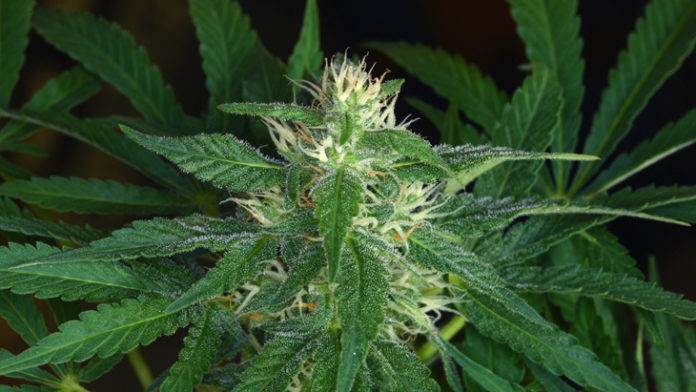|
Getting your Trinity Audio player ready...
|
The following blog post was drafted by longtime NORML activist Chris Goldstein.
The first hearing on the future of adult-use cannabis legalization was held before members of the Pennsylvania Senate Law and Justice Committee on February 7, 2022.
Senator Mike Regan (R-York) who chairs the committee, specifically sought the view of police and prosecutors.
A former US Marshall who backed Pennsylvania’s medical marijuana law in 2016, Regan is now offering plans to advance adult-use regulation. He won the support of Rep. Amen Brown (D-Philadelphia), who appeared as a witness and pledged to co-sponsor Regan’s forthcoming legalization bill.
Although full language hasn’t been introduced yet, the official memo seems to outline that a large portion of cannabis taxes from retail sales would be directed to the State Police.
Regan personally selected all the witnesses who testified at the information hearing. These included two sitting county prosecutors, Philadelphia City Councilman Curtis Jones Jr., and a panel of former cops who now work security for Pa. medical cannabis dispensaries.
Regan, and all of the panelists, seemed to agree that arresting people for simple cannabis possession was a bad idea. Somehow, they seemed to ignore that Pa. police are still arresting more than 20,000 people every year for small amounts.
Panelists were most vitriolic when discussing anyone currently engaged in selling non-regulated marijuana. For example, Regan repeatedly described someone who sold any amount of cannabis in Pa. today as “responsible for violence, mayhem, and murder.”
Cannabis consumers seemed to be generally viewed by Senator Regan as common criminals, instead of peers and voters in the community.
“Every small purchase and possession of marijuana funds these violent criminals and drug operations,” Regan claimed during the introduction.
There was no talk of transitioning today’s dealers into tomorrow’s legitimate business owners.
Rep. Amen Brown told the story of flyers that recently appeared in his district. They advertised an app for an underground marijuana delivery service. Brown claims a constituent alerted him and then some products were purchased. He found a laboratory that tested the products and claimed one sample contained a dangerous fungus.
Rep. Brown said there are serious safety issues in street marijuana. He hoped that regulation would provide for better quality products.
Councilman Jones has banned all medical marijuana dispensaries from his 4th District, a huge swath of Philadelphia. He’s no fan of legalization, but still thinks that it is inevitable.
Jones described being very concerned by people smoking marijuana openly under Philadelphia’s 2014 decriminalization ordinance, one that he cosponsored.
“So, when you say to me, ‘Do you support legalization?’ It’s a lesser of two evils, yes. But both are evils, to me,” said Jones, “Just what we need is more intoxicants in the inner city. I’d rather you send me more books, send me fruits and vegetables to feed our kids. But, if I had to choose, then there are a couple of caveats I’d go with legalization. If Philadelphia is allowed to determine where cannabis is sold.”
Councilman Jones seems to be trying to leverage his position for better access to Black small business owners when adult-use sales open one day. Yet, he also appeared skeptical of ever allowing legal cannabis to be sold within his district.
Pressed by Senator Regan to substantiate a supposed link between marijuana and violence, Jones repeated a false claim that “18% of the crimes that resulted in shootings were a result of marijuana in my district.”
The Philadelphia City Council report called the “100 Shooting Review” does point to 18% of the shootings they studied as possibly related to all illicit substance dealing, over the entire city.
Jones did not mention recommendations in that report from Philly DA Larry Krasner, including that “more low-level offenses and misdemeanors could be handled with citations, like the city did with cannabis.”
York County District Attorney David Sunday has also spent time working with the federal prosecutors’ office. Sunday mentioned murder cases involving heroin and crack cocaine.
Then, DA Sunday made a broad claim without any supporting data: “I would say that the vast majority of violent crime that we see is in some way tied to the selling or purchasing of marijuana.”
Countering much of that rhetoric was the testimony from Warren County District Attorney Robert Greene. His area borders on New York State, where the roll-out of adult-use cannabis retail is going forward right now.
When asked about illicit marijuana sales Greene said, “I don’t think we’ve seen the correlation between violence.”
He further added, “Usually when there’s violence involved, it almost every time involves alcohol or some type of drugs. When I say some type of drugs, I’m referring to meth, I’m referring to heroin. I’m referring to harder drugs.”
DA Greene went further, “Not once, not once in my 21 year career from being defense counsel and now prosecutor for going into my third term, have I seen someone that was high on weed that beat up their spouse.”
Cannabis reform activists around Pennsylvania watched the hearings with interest. Jeff Riedy, the executive director at Lehigh Valley NORML, said that he was pleased to see the discussions begin.
“These hearings may signal a new attitude on cannabis legalization, but the continued underlying tone of demonizing the plant and its consumers was disturbing. I hope that the future hearings will illuminate more diverse voices.”
Currently, state Republicans are pushing to privatize alcohol sales outside of the Commonwealth’s state stores.
“Alcohol prohibition ended nearly a century ago, and consuming it has been a personal choice. Cannabis deserves that same freedom.”
Joe Drum is a lifelong Republican who’s been working for years to convince his own party to legalize. He notes that voters from both parties get arrested every day for possession in Pennsylvania.
“This fight shouldn’t be focused on raising revenue but instead about protecting personal liberty while ensuring some justice,” said Drum.
“Senator Regan appears to be using cannabis reform as a fundraising opportunity for our already well-funded police, instead of kicking it back to the taxpayers,” added Drum.
Drum prefers opening up the cannabis marketplace to thousands of small business and family farms, as well as allowing home cultivation. He thinks those concepts should be key for GOP legislators.
“We don’t want a new war on cannabis growers or a heavily taxed marketplace designed for only a select number of operators,” said Drum.
Brian “Box” Brown of Philadelphia writes the syndicated weekly comic Legalization Nation covering politics and the cannabis industry. He was glad to see something happen in Harrisburg, but also surprised by some of the statements.
“This seemed like two full hours of demonizing cannabis and cannabis consumers. Half-truths and outright lies were used to downplay law enforcement’s role in the so-called Drug War, one that’s still focused on weed, today, right here, “ said Brown.
More elected officials, especially state Republicans are beginning to support legalization. Brown hopes they speak directly with consumers more often.
“We need real advocates in 2022 to stop cannabis arrests. Too much of the hearing sounded like what we’ve heard from prohibitionists since 1936,” said Brown.
It’s also notable that Regan did not invite one of the more politically powerful police groups in Pennsylvania — the Police Chief’s Association. They take an even harder line, hoping to maintain absolute criminal cannabis prohibition. According to a recent OPED their main concern appears to be traffic safety.
Pennsylvania currently has a zero-tolerance policy for THC, handing out DUI charges even to registered medical marijuana patients.
Patrick Nightingale is a former assistant District Attorney, who helped found Pittsburgh NORML. He’s been waiting for the Pennsylvania Republicans to consider full legalization for years.
“We are certainly optimistic in the change of tone in the Senate,” said Nightingale. “But consumers deserve the same opportunity to make their voice heard as do members of law enforcement. The success of any regulated marketplace necessarily depends on consumer participation.”
Nightingale noted that Pennsylvania’s medical cannabis remains some of the most expensive in the country, sending many patients back to non-regulated sources. As a defense attorney he’s also watching, first hand, as the worst of prohibition continues.
“Every single day that Harrisburg delays there are Pennsylvanians charged with marijuana possession and paraphernalia offenses,” said Nightingale, “Some county prosecutors still seek convictions for possession of even a couple of grams of cannabis, and the baggie in which it was contained.”
As surrounding states like New York and New Jersey reform their laws, the real-world costs of cannabis prohibition are inflating where it remains.
“People charged with cannabis offenses in Pennsylvania still face court costs, attorney fees, probation or supervision fees, and missed work. Then they face loss of subsidized housing, loss of employment, lost access to federal student loans, and even loss of custody over their children,” said Nightingale, “All over something that is 100 percent legal for millions of Americans.”
Senator Regan’s will be among one of several bills proposed in Harrisburg so far. Senator Dan Laughlin of Erie is a Republican who’s joined with Senator Sharif Street, a Philadelphia Democrat, on a competing bill for adult-use cannabis. They both made brief comments at the hearing.
The pair are also sponsoring a bill to allow home cultivation for the state’s nearly 400,000 registered medical cannabis patients.
“We know that adult use reform in Pennsylvania will not happen overnight, but it’s imperative to move forward as quickly as possible,” said Nightingale.
Regan is expected to hold two more non-voting information hearings on cannabis in the coming months.






